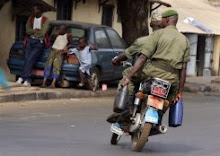The head of the European mission to help Guinea-Bissau reform its security sector has called on the government to extend the mission’s mandate by one year.
“We need to extend security sector reform until November 2009,” Gen Juan Esteban Verástegui told reporters on 19 March, after submitting in his one-year mission report to Prime Minister Carlos Gomes Junior.
The call comes weeks after the assassination of President João Bernardo Vieira of Guinea-Bissau, following the killing of Army Chief of Staff Gen Tagme Na Wai, which dealt a severe blow to efforts of stable, civilian government in the coup-wracked country.
The reform mission began in March 2008 under a one-year mandate to streamline and modernise the country’s armed forces, police units, air force, navy and judiciary, with help from the UN Peacebuilding Support Office (UNOGBIS).
Up to 2,500 members of the armed forces are to be retired as part of the scheme. But so far just 30 army officers have been demobilised, according to Verástegui, who says the mission is still only in its planning and research stages.
The government lacks much of the $183 million budgeted to carry out needed reforms, according to UNOGBIS, and requires more donor support to do so.
Some analysts say the death of Gen Tagme Na Wai– who was opposed to military reform – could speed up the process. Na Wai was reluctant to see the ethnic Balanta group – dominant in the armed forces – lose control of the army through a reform process thus lessening its influence over the political agenda, according to the International Crisis Group.
During the 2008 legislative election campaign General Na Wai reacted bluntly to the Prime Minister’s promise to cut army manpower, warning that such a move would have grave consequences for the country.
But local journalists warn the 15 March appointment of Cdr Jose Zamora Induta as interim army chief and as head of a military commission formed after the 1 March killings could create a new barrier to military demobilisation, as they fear he too, will oppose army reform.
Source: IRIN
“We need to extend security sector reform until November 2009,” Gen Juan Esteban Verástegui told reporters on 19 March, after submitting in his one-year mission report to Prime Minister Carlos Gomes Junior.
The call comes weeks after the assassination of President João Bernardo Vieira of Guinea-Bissau, following the killing of Army Chief of Staff Gen Tagme Na Wai, which dealt a severe blow to efforts of stable, civilian government in the coup-wracked country.
The reform mission began in March 2008 under a one-year mandate to streamline and modernise the country’s armed forces, police units, air force, navy and judiciary, with help from the UN Peacebuilding Support Office (UNOGBIS).
Up to 2,500 members of the armed forces are to be retired as part of the scheme. But so far just 30 army officers have been demobilised, according to Verástegui, who says the mission is still only in its planning and research stages.
The government lacks much of the $183 million budgeted to carry out needed reforms, according to UNOGBIS, and requires more donor support to do so.
Some analysts say the death of Gen Tagme Na Wai– who was opposed to military reform – could speed up the process. Na Wai was reluctant to see the ethnic Balanta group – dominant in the armed forces – lose control of the army through a reform process thus lessening its influence over the political agenda, according to the International Crisis Group.
During the 2008 legislative election campaign General Na Wai reacted bluntly to the Prime Minister’s promise to cut army manpower, warning that such a move would have grave consequences for the country.
But local journalists warn the 15 March appointment of Cdr Jose Zamora Induta as interim army chief and as head of a military commission formed after the 1 March killings could create a new barrier to military demobilisation, as they fear he too, will oppose army reform.
Source: IRIN

No comments:
Post a Comment